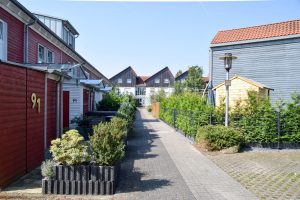12:45 Date: 05/26/2016
Project Info: http://sdg21.eu/db/8-house-von-big-in-kopenhagen-dk
Keywords: Movies, Movies 11 to 45 Min, Media, News Blog Denmark, Mix of uses, Quarters, Housing, Residential, Aesthetics / Architecture / Building Culture
12:45 Date: 05/26/2016
Project Info: http://sdg21.eu/db/8-house-von-big-in-kopenhagen-dk
 Sustainable development is hardly conceivable without a consistent circular economy. Turning away from a predominantly linear economy requires a change of course. UBA has drawn up guiding principles for politics, business and society which systematically set out the objectives, scope for action, standards of action, requirements and success factors of a circular economy.
Sustainable development is hardly conceivable without a consistent circular economy. Turning away from a predominantly linear economy requires a change of course. UBA has drawn up guiding principles for politics, business and society which systematically set out the objectives, scope for action, standards of action, requirements and success factors of a circular economy.
The pressure of strain is increasing
The world's population has doubled in the past five decades, and global raw material extraction has tripled. By 2060, the demand for raw materials threatens to increase dramatically from the current level of around 90 billion tonnes to as much as 190 billion tonnes. The competition is no longer just for raw materials, but for access to natural resources as a whole: such as soil, land, clean drinking water and intact ecosystems. According to the International Resource Panel, about 50 % of climate-damaging greenhouse gas emissions and 90 % of biodiversity loss and water stress are due to the extraction, preparation and processing of raw materials. The negative impacts on the natural environment from the extractive industries as a whole, and the resulting waste and emissions, continue to increase. Meanwhile, only just under 9 % of raw material demand worldwide is met by resource-conserving secondary raw materials.
No "business as usual" with the linear economy
A rethink is slowly taking place to meet these challenges. For example, the European Green Deal, which sets out the EU's key development goals for 2030, makes a carbon-neutral circular economy a key pillar of sustainable development. The European Commission's new "Action Plan for the Circular Economy - Towards a Cleaner and More Competitive Europe" aims at a more circular economy, which is about preserving the value of products, materials and resources within the economy for as long as possible and precisely not consuming them, as well as generating as little waste as possible. The stated aim of the action plan is to reduce the footprint in terms of resource consumption in absolute terms and, to this end, to double the proportion of materials used in a circular way over the next ten years.
Circular economy, but the right way
This requires a systemic approach; across entire value chains and product life cycles, with a systemic change of the economic system that focuses on more sustainable production patterns and product policies. This transformation to a circular economy and its political design goes far beyond what can be regulated with the help of the German Closed Substance Cycle Waste Management Act in the production and management of waste. In the sense of a sustainable circular economy, other ministries, economic and legal areas are included. The broader focus is already partly reflected in the amendment of the Closed Substance Cycle Waste Management Act (2020) to take account of the revised EU Waste Framework Directive (2018). However, in the next few years, the systemic approach of the circular economy must be developed and concretised so that the overarching goals such as the conservation of natural resources, the protection of human health and a more sustainable supply of raw materials are also achieved.
Guiding principles provide orientation
The Federal Environment Agency has therefore drawn up nine guiding principles which are intended to create a common understanding of the circular economy, its central terms, principles, objectives, benchmarks and the most important approaches to action. Waste and secondary raw materials management is embedded in these principles as an essential functional area for a circular economy. In addition, there is also a place for overarching approaches such as avoidance, design and the consideration of how to deal with pollutants. The guiding principles are explained in detail in each case, and terms and starting points are systematically explained. In addition, standards are set on the basis of the objectives of the circular economy, assessments are made and the links between the guiding principles are shown. The guiding principles are intended to create an order for the circular economy and provide reliable orientation for its successful development.
You can find more information HERE>
Source: UBA
Keywords:
DE-News, Resource efficiency, Environmental policy
Daniel Fuhrhop published the book "Verbietet das Bauen!" by oekom Verlag on 24 August 2015. The blog bears the same title and messages on the topic are published accordingly.
The central thesis in Fuhrhop's book and blog: "Building new is often associated with waste and prestige addiction, always expensive and often uneconomical; it harms the environment and promotes social division in our cities." In the book, alternatives are presented.
Link to the blog:
www.verbietet-das-bauen.de
The five latest messages from the blog "Prohibit building":
Keywords:
Stock, Blogs & Portals, Soil & land consumption, Quarters, Resource efficiency, Settlements, Sufficiency, Aesthetics / Architecture / Building Culture
To date, the "Hoher Weg" eco-settlement in Hamm, with 120 residential units, is the second largest timber housing estate in Germany. This is astonishing because it was already built in the 1990s.
The photos were taken in August 2017:
  |
The largest German timber housing estate was also built in Hamm:
http://sdg21.eu/db/wohnpark-heinrichstrasse
Further information about the settlement in Hamm-Heessen
http://sdg21.eu/db/oekosiedlung-hoher-weg-in-hamm
Keywords:
Wood construction, News Blog NRW, Settlements, sdg21 news
5:18 min - from 29.4.2019
Project Info: http://sdg21.eu/db/holzhybridhaus-skaio
Keywords:
Movies, Movies 4 to 10 Min, Wood construction, News Blog Baden-Württemberg